The promotion of renewable energy and efficient use of energy is the key to sustainable energy. The City has installed a photovoltaic power system at the nonfunctioning landfill, which has transformed into an environmental restoration park. The landfill site has now become a recreational park for the public, by giving the old place new meaning and by developing renewable energy. Through subsidy programs to increase the incentive for the private sector to set up photovoltaic systems, the output capacity of green electricity increase annually. On the other hand, social housings have led the way in the setup of smart energy management systems, which are used to analyze and control household power usage, thereby increasing the efficacy of energy use. At the same time, an energy saving plan for disadvantaged families is promoted so to maximize energy conservation outcomes while taking care of disadvantaged groups. Stable power output and effective energy conservation bring about sustainable power consumption.
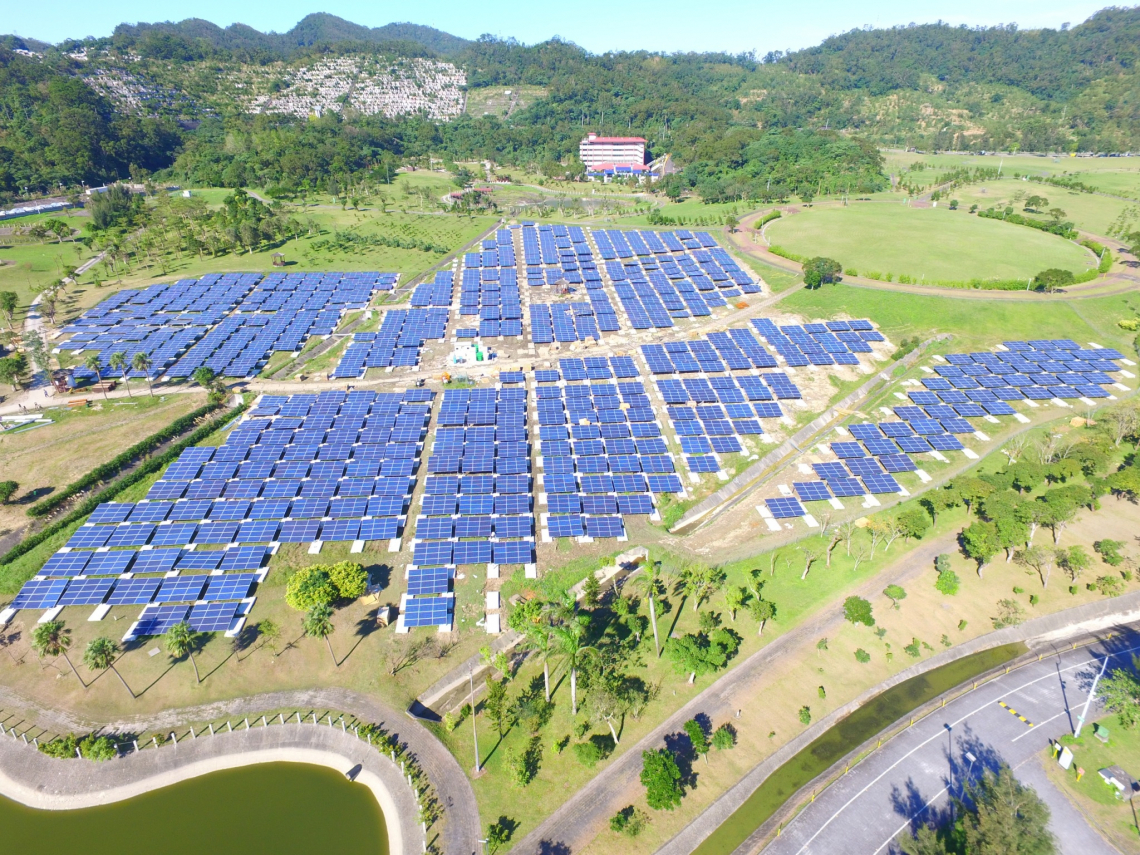
By 2030, ensure universal access to affordable, reliable and modern energy services.
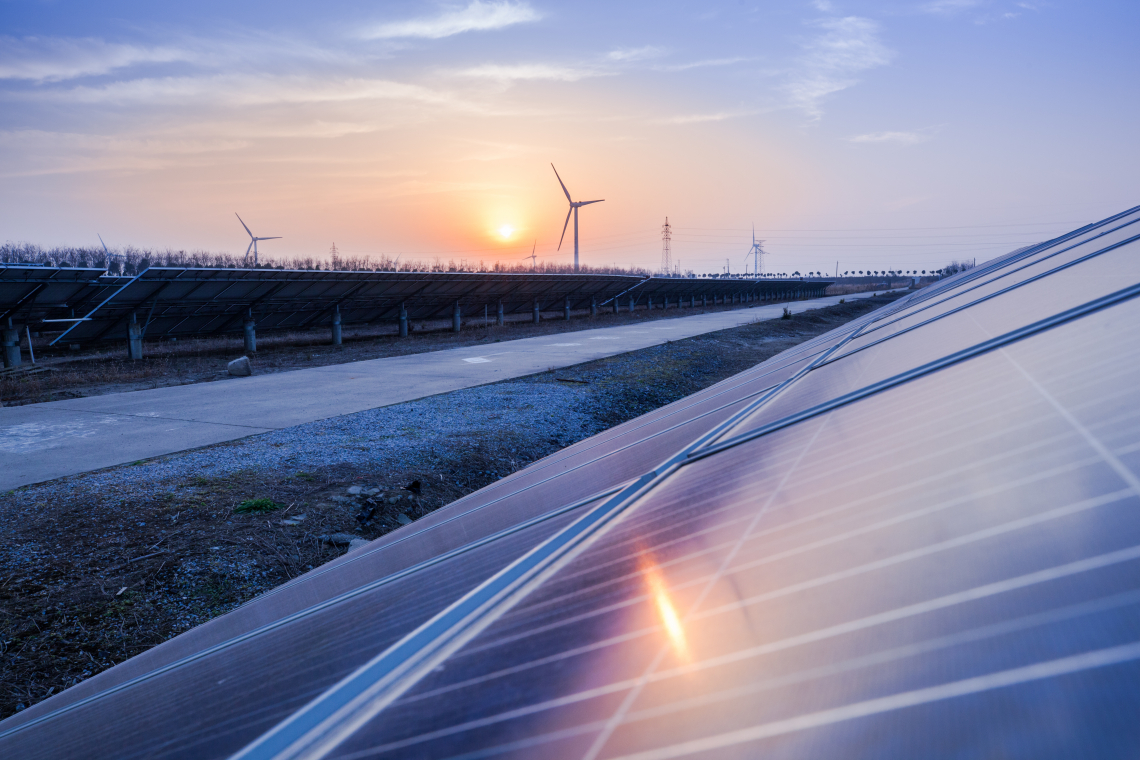
By 2030, increase substantially the share of renewable energy in the global energy mix.
According to the City's electricity consumption statistics in 2019, the electricity consumption of the residential and business sectors accounted for 91.4% of the City's electricity consumption ( around 14.72 billion kWh, of which the service sector accounted for about 50.0%, and the residential sector about 32.2% ). Evidence proves that the promotion of power saving in the residential and business sectors is the City’s top priority, thus “Taipei City Energy Conservation Promotion Task Force” is established. Using 2005 as the base period, reduce by 2% by 2020 in the short-term, and reduce by 5% by 2025 in the long-term. Through the collaborative efforts of all responsible units to implement power saving, strictly safeguard industrial and commercial inspection mechanisms, and assist offices, schools and communities in implementing power saving strategies. At the same time, promote the demonstration of social housing smart grid, rooftops of public offices and schools, installation of photovoltaic systems for private organizations. The relevant contents are as follows:
To help private enterprises boost the autonomous capability in energy conservation and encourage apartment complex to actively promote energy conservation, organize “Energy Conservation Leadership Award” to award and to openly praise energy saving units in the service industry and community residence with the intention of inspiring the industry to do the same and leading a social movement of low-carbon energy saving lifestyle. A total of 52 units had signed up for participation in 2019, and 18 winners were selected. The actual amount electricity saved was approximately 6.01 million kWh.
Replace all public street lights into LED street lights, and collaborate with the central government in the promotion of power saving activities in residential and business sectors. Subsidize the service industry, hotel industry, medical institutions, transportation industry, office and schools, communities and households to replace equipment. Statistically, the residential and business sectors have saved about 192.52 million kWh of electricity. It is estimated that the City will have saved 250 million kWh of electricity in three years.
Through the nine locations of “D2 Xinglong Social Housing in Wenshan District”,“Qingnian Social Housing in Wanhua District”,“Dongming Social Housing in Nangang District”,“Zhongnanduan Social Housing in Nangang District”,“P2 Qingnian Social Housing in Wanhua District”,“Minglun Social Housing in Datong District”,“Ruiguang Social Housing in Neihu District”,“iuzhangli ( A and B Blocks ) Base in Xinyi District”,“Guangci Boai Estate in Xinyi District”, with a total of 5,134 households of smart social housing, to jointly construct a large-scale flagship smart grid. Create a new generation of smart social housing by introducing varying levels of energy management systems and advanced Information and Communication Technology ( ICT ) solutions as development visions. Improve the living and service standards of social housing, and through analysis management of the smart grid and energy management systems, energy efficiency can be improved. It is expected that households can save 10% of electricity and reduce peak loading by 20%.
Through the four main objectives of “cityowned land, bidder-built houses”, “public housing priority demonstration site”, “increase number of private subsidies” and “smart grid, citizen powerhouse”, continue to promote solar power in the City to achieve the goal of “advanced energy saving city”.
In the private sector, to facilitate ease of subsidy application for the public, the City has set up consultation windows, and has entrusted professional teams to proactively seek regions of high-potential to install photovoltaic systems and to help with application and installation, so to accelerate the promotion of solar power. In the public sector, a total of 33 offices and 93 schools installed photovoltaic systems in 2019, producing total of 24,139 kW. Adding to the 28,942 kW installed by the central government and private organizations, the estimated annual power generation is around 26.4 million kWh and decreases 14,076 metric tons of carbon, which is equivalent to the carbon sequestration of 36 Daan Forest Parks.
The goal is to install 50MW of photovoltaic systems by 2030, with expected annual growth of 2MW. Through public-private partnership and internal-external promotion, continue to take inventory of the City’s idle spaces of various office and school buildings or properties while promoting private subsidization and citizen powerhouses and inviting experts and scholars to carry out field surveys to assess the City’s potential for photovoltaic installations.
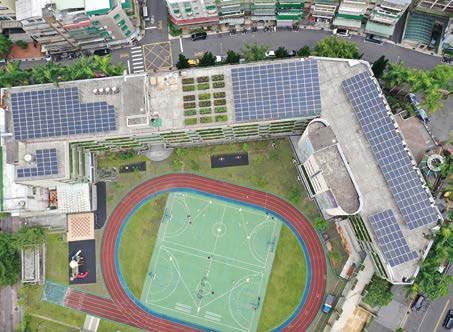
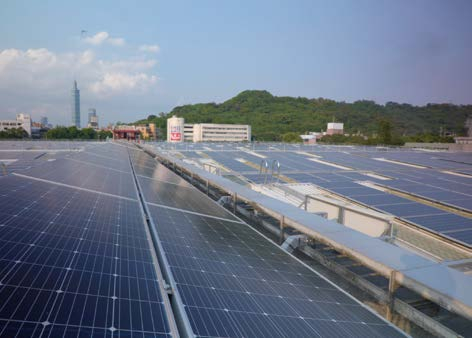
In 2014, Taipei City Self-government Ordinance for Green Buildings had been issued and implemented, then from 2015 to 2017, relevant sub-laws and supporting measures were formulated.
The existing buildings located within the jurisdiction of the City that have obtained a five-or-more-year license and have not been listed as high-end additionally taxable residence by Taipei City Revenue Services, applications can be made by the management committee or representing person with diagnosis report made by the Construction Management Office or execution report proposed by a registered architect attached. Applications of green roof or improvements to green energy facilities are to be made during the acceptance period, then upon review approval by the review team, subsidies will be granted.
Through counseling and tracking efforts, toward users who are difficult to arrange for improvement projects or have complex technical levels, the City accurately provides information such as application for government subsidies to accelerate the replacement of energy-saving equipment, or introduce them to cooperate with ESCO7service providers to carry out energy-saving improvement projects and other information to help users implement their willingness toward improvement; In turn, they would organize energy-saving technology exchange seminars and energy management personnel training courses to boost the breadth and depth of energysaving application technologies to further spread energy-saving effects.
As per Article 8 of the "Energy Administration Act" promulgated by the Ministry of Economic Affairs, up to 20 types of promulgated designated users shall be duly audited. Audit focus areas include notably the indoor air-conditioning temperature limit up to 26 degrees for public access to business premises where the air-conditioning shall not leak, and use of halogen bulbs and incandescent bulbs are strictly prohibited. Besides, by means of the promotion of energy-saving products in combination with hypermarket stores, 3C home appliance stores, home appliance dealers and other chain stores, the City tries by all available means to provide the motivation for implementing energy-saving measures.
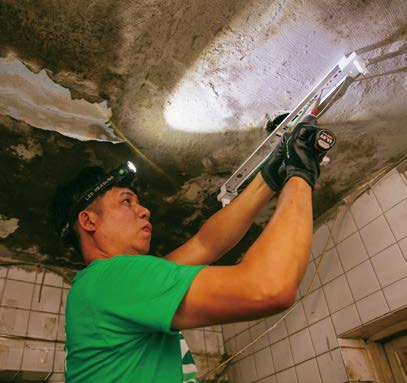
The City encourages households to purchase energy-saving and power-saving appliances. For economically disadvantaged families, the “Community Disadvantaged Family’s Energy Saving Renovation Service Plan” was initiated in 2015, to offer free installations to replace old lightings with energy efficient lightings for listed low- and middleincome households through on-site requirement evaluations made by professional service teams. Not only is power saved, their electricity bills will also be reduced, so to extend the conservation of energy and take into account of social welfare. In 4 years, it has served 3,787 low- and middle-income households, replacing about 37,000 lightings and saving a total of around 1.54 million kWh of electricity.